Search Images
Browse Content (p. 1377)
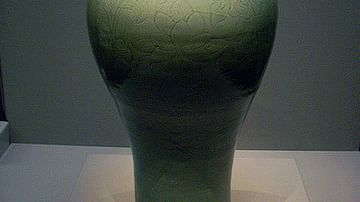
Image
Maebyeong Celadon Vase, Goryeo Dynasty
A maebyeong celadon vase with lotus decoration. 12th century CE, Goryeo Dynasty, Korea. (National Museum of Korea, Seoul, South Korea)
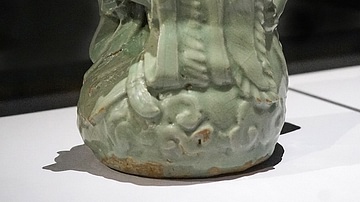
Image
Taoist Figure Celadon Pitcher, Goryeo Dynasty
A celadon pitcher in the form of a Taoist figure. Goryeo Dynasty, 12th century CE, Korea. (National Museum of Korea, Seoul, South Korea)
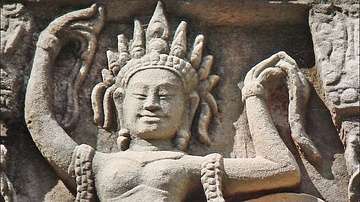
Image
Apsara, Angkor
Dancing apsara, Preah Khan, Angkor.
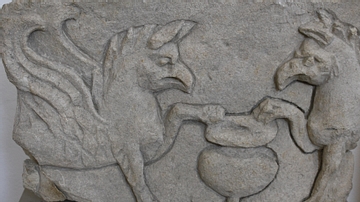
Image
Griffin Relief, Arausio
A block from a Roman mausoleum depicting griffins. 1st century BCE, Arausio (Orange), France. (Archaeological Museum, Orange)

Image
Roman Cyclops Mask
A stone mask in the form of a cylops, from Roman Arausio (Orange), France, 1st century CE.
Archaeological Museum, Orange.
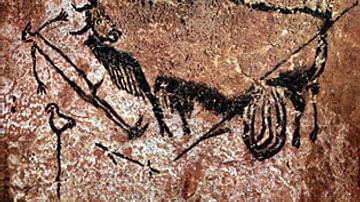
Image
Wounded Bull, Man & Bird, Lascaux Cave
Cave art in the Lascaux Cave in the Dordogne region, southwestern France. Dated to the Upper Palaeolithic period. It depicts a wounded aurochs bull, a man and a bird.

Image
Painting of a Horse, Lascaux Cave
Horse depicted in Lascaux Cave in the Dordogne, southwestern France, dated to the Upper Paleolithic period.
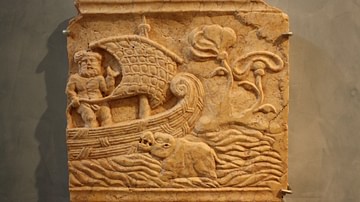
Image
Ship Relief, Saguntum
A marble relief plaque depicting a ship in African waters. 2nd - 3rd century CE. (Archaeological Museum, Sagunto, Spain)
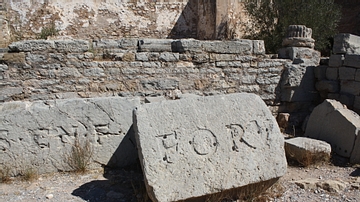
Image
Inscription Stones, Forum of Saguntum
Blocks carrying a Latin inscription of the imperial forum of Roman Saguntum (Sagunto), Spain. 1st century CE.
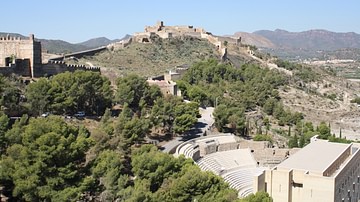
Image
Acropolis & Theatre of Saguntum
The fortified acropolis and theatre of the Iberian-Roman town of Saguntum (Sagunto), Spain. Fortified since the 5th century BCE, the walls today date to the 11th century CE with later additions. The restored theatre dates to the 1st century...